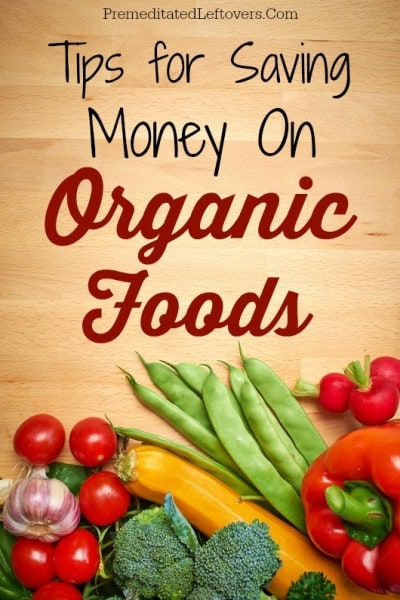Many people stay away from organic foods because they think they are more expensive. While it is true that some organic foods are, it is not the case across the board and there are many ways to get organic and locally grown food for less. Here are some tips for saving money on the organic foods you want.
Tips for Saving Money on Organic Foods
Look for coupons. As couponing has become more and more popular, organic food companies have started putting out coupons for their products. You can often find these on the company’s website or by following them on social media. Sometimes, you can get them by emailing a company and asking for them.
Sources for Organic Coupons:
- Mambo Sprouts
- Ibotta Cash Back App
- Checkout 51 Cash Back App
- Common Kindness
- Coupons.com
- Whole Foods Market
- Saving Star
Just like with conventional foods, try to stay away from as many convenience foods as possible. These are almost always more expensive than buying the products in a more raw state with more preparation involved.
Buy store brand off-label goods. Many stores, even the big box ones, are getting into the organic food industry. They have their own private label organic food products with everything from canned beans and tomatoes to potato chips.
Start shopping at farmer’s markets. While not all food sold at these street stores are organic, you are more likely to find them and they are fresher as well. Plus, you have the added bonus of being able to directly ask the farmer in most cases. Here are more tips for How to Save Money at a Farmer’s Market.
Join a Co-Op. A Co-Op is a local store that requires membership and is almost always completely volunteer-run. These stores often have local foods that are organic and you can save up to 50% on the price.
Shop in the bulk bins. Many of the foods you find in bulk containers are organic. Shopping in bulk is a great way to save money on many foods, not just organic, as it cuts out the container cost and the price you pay for the brand.
Do your research. Just because something isn’t labeled “organic” or marketed that way doesn’t mean it isn’t. Look closely at labels and do your research on brands to determine if it is. Getting a certified organic label often is no more than a technicality. A food could have been grown without GMOs or pesticides and still not have the actual label because the farmland was used several years ago for inorganic farming.
Shop in season. Whether you are shopping for organic food or not, shopping for foods that are in season is always the best way to save money on them. Here is an in-season produce guide.
Meal plan. Just like shopping in season, meal planning is a great way to maximize your budget, cut down waste and make sure you know what you will be buying before you head to the store.
Prioritize. If you can’t afford to buy all foods organic, decide what is most important to you. The foods that really should be focused on are meat, dairy and the “Dirty Dozen” (produce that is grown with the most pesticides).
Check online for deals. Sometimes sites like Amazon have amazing deals on organic foods. You can even subscribe and save with some of them as well and never have to go out and buy them at a higher price in-store.


Tara says
This is good information. The coupon sites will come in handy, for sure. Another good suggestion is to eat in season. We’ve been spoiled by the availability of produce year round but it’s more healthy to eat seasonally anyway. Thanks for sharing!